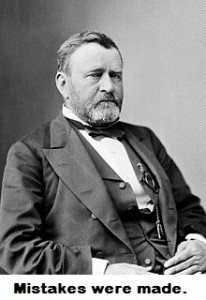That is the question. Today I’ll cover one of my pet peeves—passive sentence construction, as contrasted with the active version.
Defining these types is easy. In active sentence construction (also called ‘active voice’) the subject of the sentence performs the action described by the verb. In passive construction, the subject is the recipient of the action.
For example, here are two sentences from a recent story of mine:
- Doctor Rudolph Wellburn looked up from his workbench as Red dragged the trampled man through his door.
- The man had been bound with ropes to three tree limbs lashed together.
In the first, the subject is the doctor, Wellburn, and the verb is looked. There’s another clause with its subject Red and verb dragged. Both are active, since the subject is performing the action. In the second sentence, which is passive, the subject man has had an action done to him, described by the ‘had been bound’ verb.
It’s possible to convert sentences back and forth between the two voices. I could have phrased the first sentence as “The workbench was looked up from by Doctor Rudolph Wellburn as…” I also could have worded the second sentence as “Red had bound the man with ropes…” I’ll soon reveal why I didn’t do that.
I think of active sentences as direct, honest, and clear. They also seem stronger to me. Passive sentences, with their ability to hide the subject entirely, seem dishonest, confusing, and weak. Needless to say, I prefer active sentences. At my workplace many others write in passive sentences, so I’m on a one-man crusade to change all that. Change has to start somewhere!
 Among the worst passive sentences ever written is “Mistakes were made.” Politicians since Ulysses S. Grant have used that one to acknowledge a problem but to hide the responsible party from blame. However, the press and the public are on to that tactic, and would pounce on any official who uttered it (after laughing out loud).
Among the worst passive sentences ever written is “Mistakes were made.” Politicians since Ulysses S. Grant have used that one to acknowledge a problem but to hide the responsible party from blame. However, the press and the public are on to that tactic, and would pounce on any official who uttered it (after laughing out loud).
By now you’re wondering why Poseidon’s Scribe has stated a firm bias against passive sentences, and yet used one in a recent story. There are several valid reasons for using passive sentences:
1. The doer of the action is unknown, unwanted, or unneeded in the sentence.
2. The action of the sentence needs more emphasis or focus than the doer of the action.
3. Sentence variety.
4. Putting the subject at the end of the sentence can delay its impact to achieve surprise or humor.
I chose a passive sentence in my story for reason 1, since the identity of the person who bound the man to the tree limbs was unimportant to the story. Police reports use passive sentences when the person who committed the crime is unknown. Scientists often use passive sentences for reason 2, to emphasize the experiment, not the experimenter, and to sound more objective.
But in your fiction writing I advocate sticking to active sentences as much as you can. Weed out passive ones, and make each one defend its place in your story. Remember, passive sentences are easier to write and you can fall into the habit of favoring them unless you make the effort to avoid them.
Am I being too harsh on passive sentences? Leave a comment and let me know. I’m not infallible, after all, but I’m not too proud to admit that mistakes were made by—
Poseidon’s Scribe
P.S. Be sure to check this space on Wednesday, December 19. I’ll be participating in a blog hop called The Next Big Thing. You wouldn’t want to miss the next big thing, would you?
P.S.

